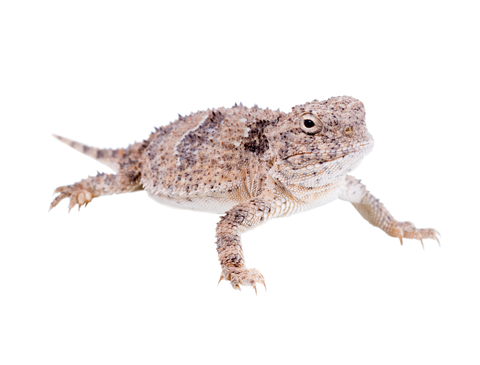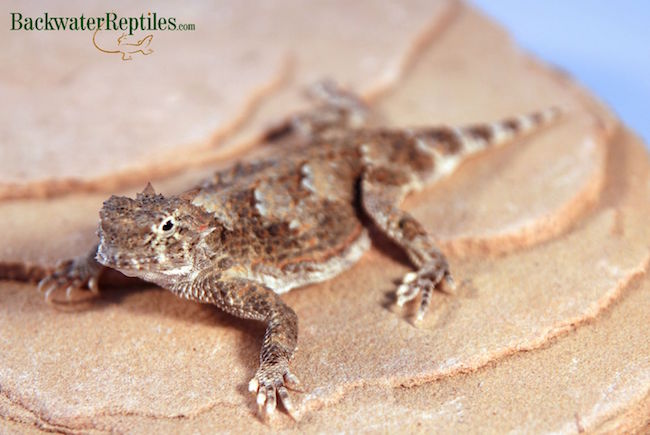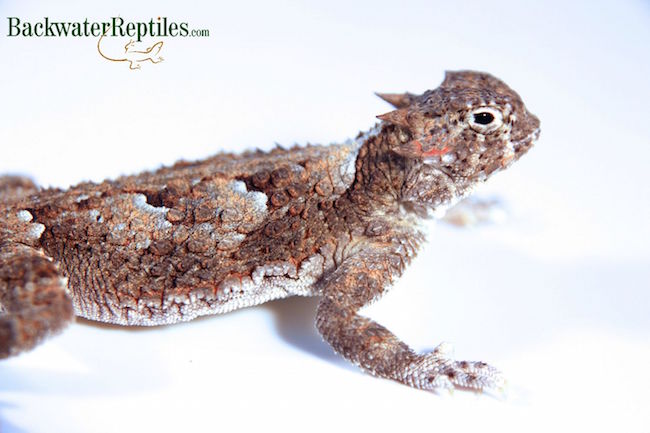What do Horned lizards eat? That’s a question many well-intentioned reptile hobbyists ask when their pet Horned lizard won’t eat various common feeder insects. As is usually the case, it’s important to educate yourself before you purchase one of these fascinating lizards as a pet. When properly set up, they can make long-lived pet lizards.
“Horned toads,” as they are often called due to their squatty appearance, are members of the Phrynosoma family and are spread across North and Central America. There are thirteen recognized species in all, with most occurring within the United States.

What do Horned Lizards Eat?
The Problem: It’s pretty simple. Generally speaking, Horned lizards eat ants in the wild. Harvester ants are often preferred (be careful, they bite!), but they will consume common black ants as well (not the tiny red ones). Collecting enough ants can be very difficult, although you can attract them with just about any over-ripe fruit. But, there’s a trick that can make things much simpler…
The Solution: The easiest method is to switch them over to appropriately-sized crickets, which most of them will readily do. There’s one very important catch–Horned lizards require formic acid in their diet. They get this from ants in the wild, so it will need to be replaced if you feed them crickets instead. How can this be done? Simple.
Fortunately, we have a supplement available that’s specifically for Horned lizards. It’s a powder that you simply dust feeder insects with, and immediately offer them to your Horned lizard. Presto! You’ve now replaced the formic acid your pet lizard previously derived from consuming ants. You can purchase this product on our Horned lizard page using the drop-down menu on our horned lizard page.

Using the above care tips, your pet Horned lizard can enjoy a long lifespan on a formic acid supplemented diet of crickets, mealworms, beetles, and grasshoppers.
We hope our “What do Horned lizards eat?” blog article has helped explain this unique reptile’s specialized diet in a way that is both applicable and relevant to your situation. If you have any questions, just let us know. If you’re ready to keep your own pet Horned lizard, we offer them for sale on our reptile website.




